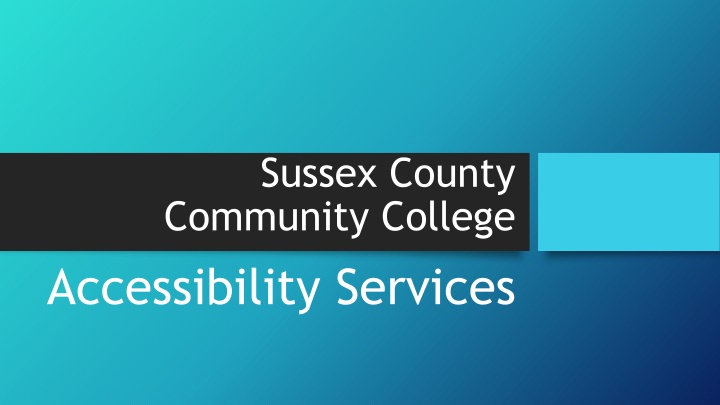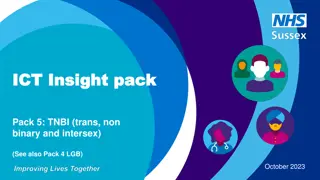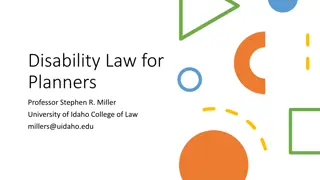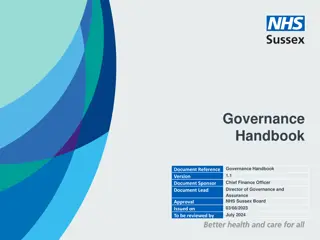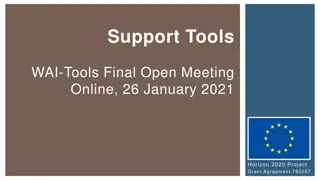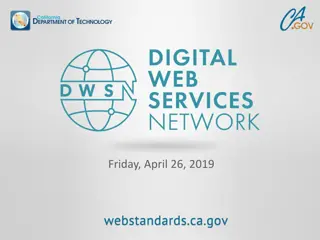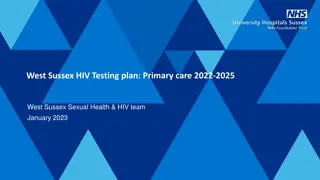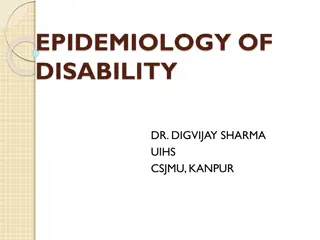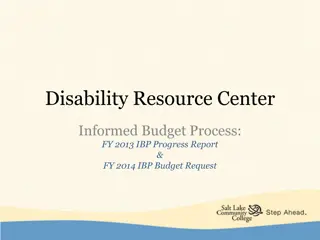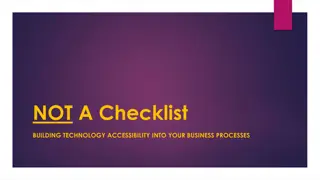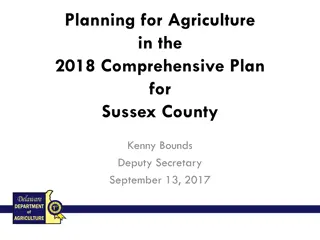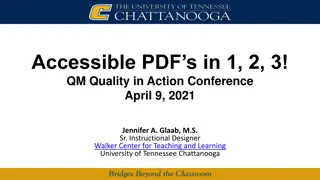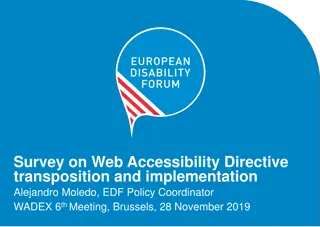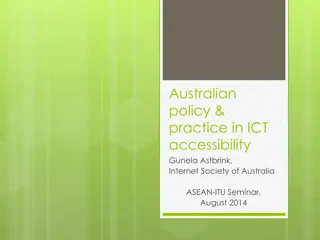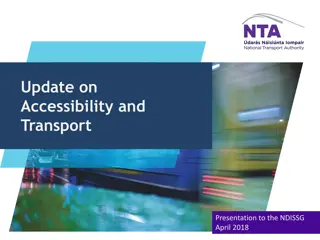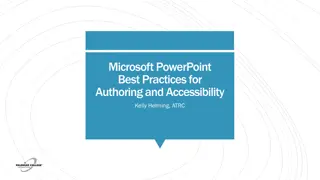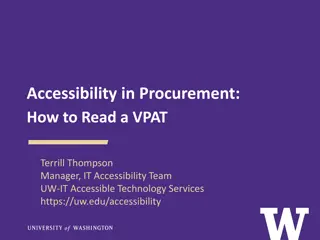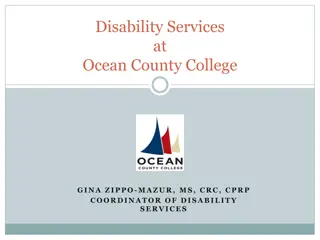Disability and Accessibility Services at Sussex County Community College
Person with a disability is defined as someone with a physical or mental impairment that limits major life activities. Learn about laws governing disability resources, differences between high school and college ADA, and documentation required at the college level.
Download Presentation

Please find below an Image/Link to download the presentation.
The content on the website is provided AS IS for your information and personal use only. It may not be sold, licensed, or shared on other websites without obtaining consent from the author.If you encounter any issues during the download, it is possible that the publisher has removed the file from their server.
You are allowed to download the files provided on this website for personal or commercial use, subject to the condition that they are used lawfully. All files are the property of their respective owners.
The content on the website is provided AS IS for your information and personal use only. It may not be sold, licensed, or shared on other websites without obtaining consent from the author.
E N D
Presentation Transcript
Sussex County Community College Accessibility Services
What is a disability? As defined by the US Department of Justice, person with a disability is someone who: has a physical or mental impairment that substantially limits one or more major life activities, has a history or record of such an impairment (such as cancer that is in remission), or is perceived by others as having such an impairment (such as a person who has scars from a severe burn). ADA U.S. Department of Justice Civil Rights Division
Substantially limits and major life activities The term substantially limits is interpreted broadly and is not meant to be a demanding standard. But not every condition will meet this standard. An example of a condition that is not substantially limiting is a mild allergy to pollen. Major life activities are the kind of activities that you do every day, including your body s own internal processes. There are many major life activities in addition to the examples listed here. Some examples include: Actions like eating, sleeping, speaking, and breathing Movements like walking, standing, lifting, and bending Cognitive functions like thinking and concentrating Sensory functions like seeing and hearing Tasks like working, reading, learning, and communicating The operation of major bodily functions like circulation, reproduction, and individual organs Pregnancy, unless medical complications arise
Laws Governing Disability Resources Section 504 of the Rehabilitation Act of 1973 The Americans with Disabilities Act (ADA) -1990 The Americans with Disabilities Act Amendments Act (ADAAA) -2009 October 11, 2016: DOJ amended ADA regulations to align Title II and III of the ADA with Title I of the ADA (employment regulations) Other federal and state legislation SCCC https://www.sussex.edu/student-support/student-accessibility- services/student-guide/ SCCC https://sussex.edu/current-students/student-handbook/academic- information-support/
Difference Between High School and College College ADA Americans with Disabilities Act of 1990, Section 504Rehabilitation Act of 1973 ADA is about ACCESS High School I.D.E.A. Individuals with Disabilities Education Act Section 504, Rehabilitation act of 1973 I.D.E.A. is about SUCCESS
Documentation College High IEP, 504Plan, Educational and Psychological Evaluations are used to assist in determining which academic accommodations are applicable at the college level If student does not have documentation, they can be evaluated at their own expense Documentation from a licensed medical provider may also be considered High School IEP Individualized Education Plan and/or 504 Plan Educational and or Psychological Evaluation School provides the evaluation Documentation is used to determine if a student is eligible for services based on the 13 disability categories
Student Advocacy College Student advocated for themselves Student contacts Accessibility Services office High School Parent advocates for student School arranges testing and accommodations Teaches reach out if they feel student needs assistance
Course Material High School Teachers can modify curriculum, alter assignments, alter pace of instruction Work may be read during class discussed, clarified and re-taught Reading may not be required outside of class Reminders of assignments and deadlines are reiterated College Professors are not required to modify curriculum or alter assignments Reading includes text and supplemental materials outside of class Student need to complete assigned reading and review material outside of class Students are expected to refer to syllabus or due dates
Grades and Assessments College Modifications to assessments How assessments are given (testing center, extended time) may be provided based on documentation 2 or 3 exam are typically given, more material covered Professors have a strict make-up policy for missed assessments Please consult course syllabus High School IEP/504Plan may include modifications to assessments Testing usually covers a small amount of material Makeup tests are available if absent
Process Make an appointment with Accessibility Services Appointments can be scheduled through a link on the Student Success Center webpage Provide a copy of your documentation to the Accessibility Services office During the meeting the accommodations you are entitled to will be reviewed A Letter of Accommodation will be prepared, it is the students responsibility to provide a cop of the letter to each of their professors each semester. Letters will be emailed to the students SCCC email account.
Common Accommodations Testing in a distraction reduced environment Extended time for testing Assessment questions may be read by a proctor Copies of lecture note and/or Powerpoints Extended time for assignment deadlines ASL Interpreter Services
Support Services Tutoring Writing Center STEM Tutoring - Library Mental Health Short term counseling Lakeside Counseling U Will Veteran Counselor Resources Nutrition Center Degree UP DSAI/PSS
Meet with me Pamela Cavanagh, M.Ed. Coordinator of Accessibility Services/ADA B210 Student Success Center Building B pcavanagh@sussex.edu 973-300-2153 www.sussex.edu Student Success Center
